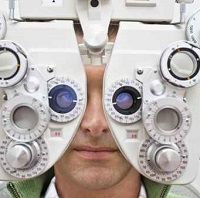Genetics Figure in AMD's Onset and Progression
Genetic factors are at work in determining who gets age-related macular degeneration, and its progression, a German team reported.

Age-related macular degeneration (AMD) is common and can cause both visual impairment and blindness.
In a German study reported in PLOS researchers looked a the genetics of the condition.
They assigned 3,444 individuals with AMD to nine categories of severity based on the characteristics of each eye.
They then genotyped 18 single nucleotide polymorphisms (SNPs) and tried to correlate them with the severity stages.
The team found there are genetic factors at play.
“The association of known genetic risk factors with AMD became stronger with increasing disease severity, which also led to an increasing discriminative ability of AMD cases and controls,” wrote Tina Schick of the Department of Ophthalmology, University Hospital of Cologne, Cologne, Germany, and colleagues, “Genetic predisposition was also associated with the disease severity of the fellow-eye, highlighting the importance of both eyes in AMD patients”.
The team’s research builds on earlier work by others done mostly in late-stage AMD.
“Our results support these findings in more detail and suggest that there is a disease continuum from early to late AMD based on genetic factors,” the authors noted.
They found that genetic risk variants primarily established for late AMD “showed reduced effects on early stages of the disease,” and that “associations of these variants with AMD became stronger with increasing disease severity, which also led to an increasing discriminative ability”
The results also underline the importance of the second eye in AMD patients because the genetic predisposition was also associated with the disease severity of the fellow-eye.
The findings could lead to developing treatments to prevent vision loss, but first researchers need to determine the processes that lead to the onset of early AMD, as well its progression.